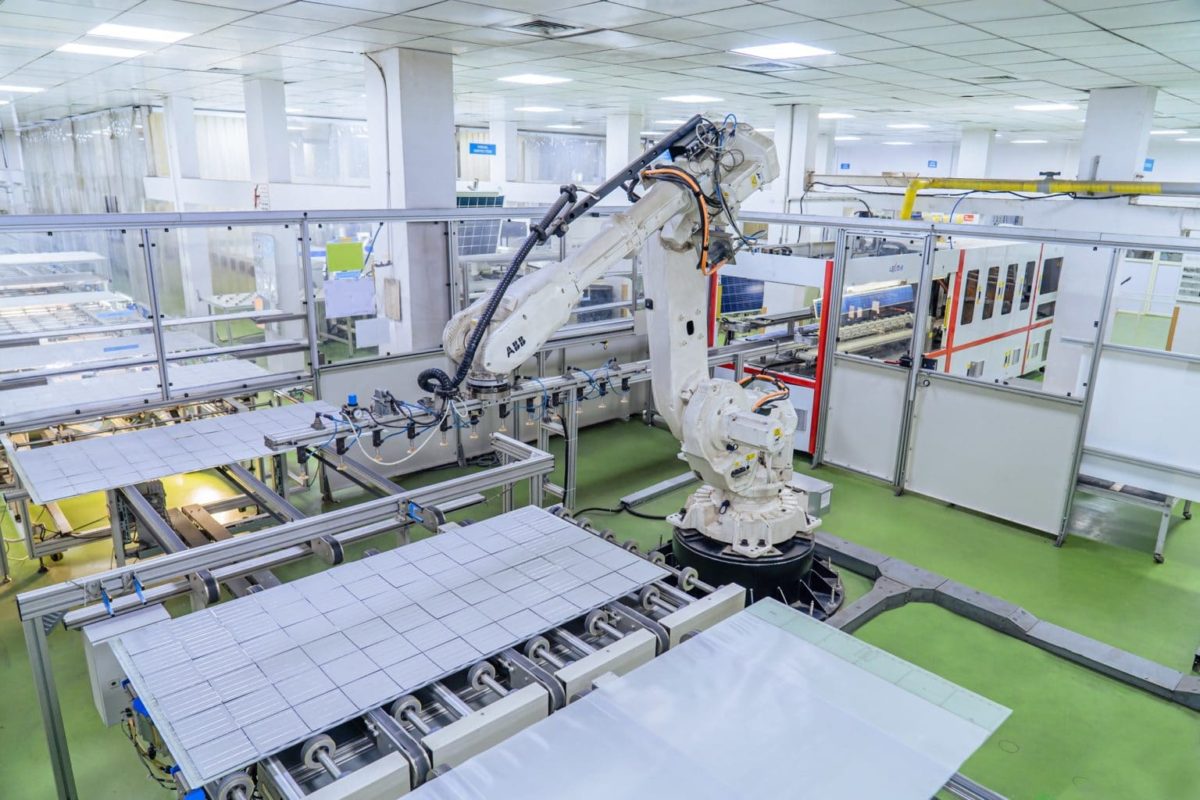From pv magazine India
Indian solar panel manufacturers who managed to keep production levels steady despite Covid-19 lockdowns this year are seeing slowing sales as they grapple with rising input costs. With the safeguarding duties slapped on foreign products due to be wound down in late July, domestic manufacturers are navigating turbulent waters.
Last year's nationwide lockdown has this year been replaced on a state-by-state basis, enabling manufacturers in regions less affected by the pandemic to continue operating under partial lockdown.
Speaking to pv magazine, Bharat Bhut, co-founder and director of Gujarati photovoltaics manufacturer Goldi Solar, said: “Different states have different impositions of the lockdown. We are situated in the western part of the country, in Gujarat, which had a partial lockdown. Industries were allowed to operate at a normal scale, with most … of the logistics and services running normally. We faced very few issues in the supply chain and delivery within Gujarat. Only states or regions that had a stricter lockdown faced a slowdown.”
pv magazine May edition
However, manufacturers have been faced with low demand as nationwide PV installation has slowed due to labor and logistics issues.
“While there is no direct order stating that development [and] installation cannot continue in lockdown, we are facing logistical and labor issues,” said Bhut. “The demand has dropped as the installation is not at the pace that it should have been. We do not have enough offtake; we are seeing [less] demand than production.”
Haryana-based panel and lithium battery business Loom Solar also reported an impact on sales.
“Almost all states had closed retail shops during this time so there was not enough demand in the market,” said co-founder and director Amol Anand. “Besides, warehouses were also closed as domestic demand reduced to 70%.”
Small-scale manufacturers have been most seriously affected, according to Anand. “Large manufacturers, with a plant capacity of more than 500 MW, at least have old orders from EPC [engineering, procurement and construction] companies so they are occupied in fulfilling them,” he said. “In comparison, small … manufacturers face many challenges, the biggest being financial liquidity.”
Outlook
A sudden rise in raw material prices has applied further pressure on profit margins at a time when the duties applied to imported solar panels are about to finish.
The safeguarding duty on solar cell and module imports from China, Thailand, and Vietnam is due to expire on July 30 and the customs levy which will replace it is not set to kick in until April 1. Indian manufacturers fear that window will see Chinese manufacturers swamp the market with low-cost modules.
The situation is likely to mean long-term solar supply deals will not be viable for the immediate future, according to Goldi Solar director Bhut.
“It would be difficult to commit, on both timelines and prices, for a longer duration, owing to price fluctuations and [the] unpredictability of all variables: module prices, freight cost, unavailability of laborers etc,” he added.
This content is protected by copyright and may not be reused. If you want to cooperate with us and would like to reuse some of our content, please contact: editors@pv-magazine.com.




In this pandemic, most of the businesses are running are slowly. Not only Indian solar. We should obey this situation. When we recover this pandemic. We can do business better. So we should be considered it right now.